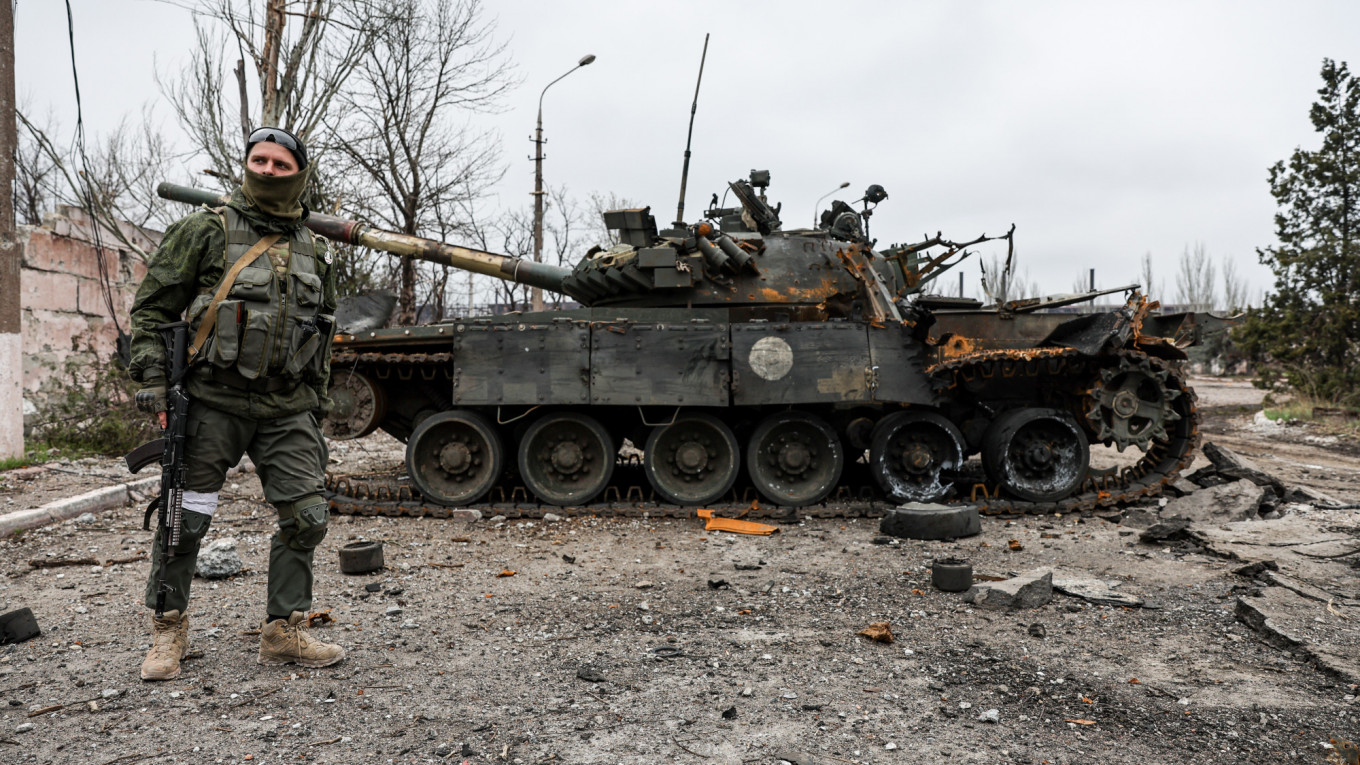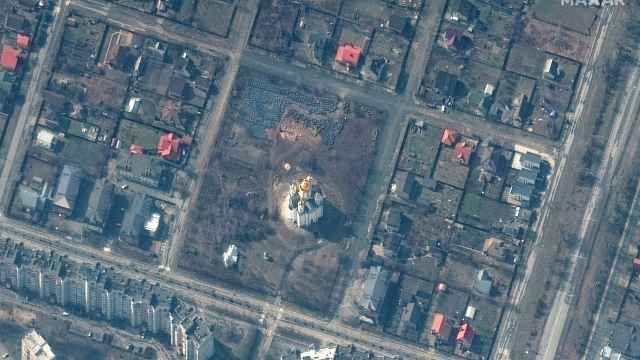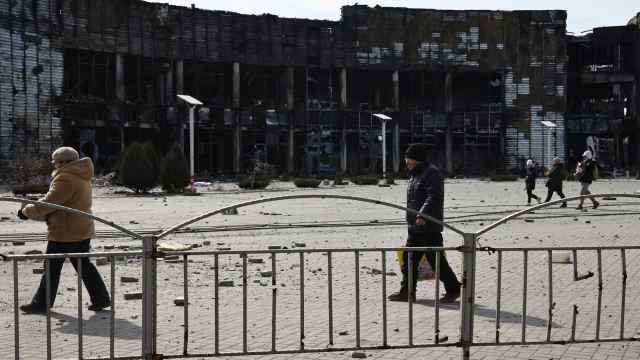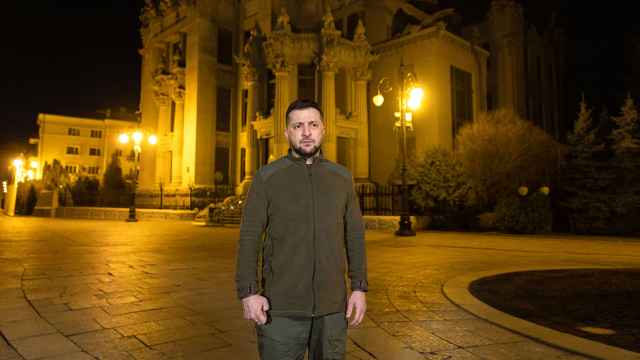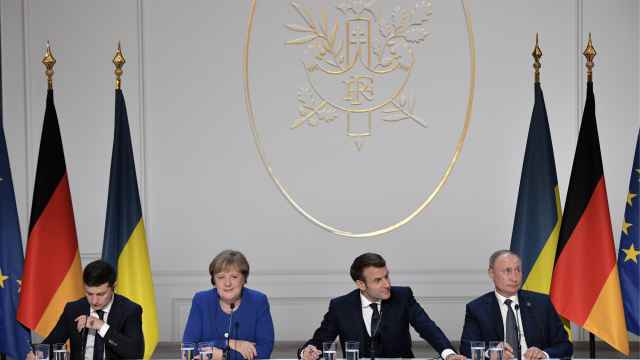Russia said Friday it intended a full-bore assault to carve out a sizeable slice of Ukraine but risked intensified world outrage as the UN documented the killing of dozens of civilians in one town.
Ukraine's government, emboldened by a fresh influx of high-grade Western weaponry, said its beleaguered forces were still holding out inside a sprawling, seaside steelworks in the razed city of Mariupol.
The Kremlin has claimed the "liberation" of Mariupol, whose control is pivotal to its war plans nearly two months after President Vladimir Putin ordered the shock invasion of Russia's Western-leaning neighbor.
"Since the start of the second phase of the special operation... one of the tasks of the Russian army is to establish full control over the Donbas and southern Ukraine," Major General Rustam Minnekaev said.
"This will provide a land corridor to Crimea," he added, according to Russian news agencies, referring to the peninsula Russia annexed from Ukraine in 2014.
Minnekaev's comments were the most detailed description yet of Russia's goals in the "second phase" of its operation, which was forced on the Kremlin after Ukraine's dogged resistance around the capital Kyiv.
Russia's Defense Ministry said it was ready for a ceasefire at Mariupol's Azovstal steel plant, to allow out hundreds of trapped civilians — but only if Ukraine's soldiers surrendered.
The defenders have refused to yield, and Russia stands accused of serial violations of other humanitarian offers.
"The enemy's offensive operation in the south hinges on Mariupol. The enemy is trying to focus all its efforts on it," Ukrainian regional governor Pavlo Kyrylenko told AFP.
Andriy Yermak, chief of staff to Ukrainian President Volodymyr Zelensky, dismissed the Russian military plan outlined by Minnekaev.
"We have our own scenarios to defend Ukraine and I would point out that plenty of Kremlin plans have already been ruined by the work of our army and our people," he said on social media.
Russia's change of strategic focus to southern and eastern Ukraine saw invading forces leave behind a trail of indiscriminate destruction and civilian bodies around Kyiv, including in the commuter town of Bucha.
'Mass grave'
A United Nations mission to Bucha documented "the unlawful killing, including by summary execution, of some 50 civilians there," the UN's Office of the High Commissioner for Human Rights said.
Its spokesperson Ravina Shamdasani said Russian forces had "indiscriminately shelled and bombed populated areas, killing civilians and wrecking hospitals, schools and other civilian infrastructure, actions that may amount to war crimes."
The UN mission was sent on April 9, a week after an AFP team found bodies of people dressed in civilian clothing lining the streets of Bucha, after the town had been under Russian occupation for over a month.
U.S. satellite imagery company Maxar released photos that it said showed a "mass grave" on the northwestern edge of Manhush, west of Mariupol.
U.K. police said they had received "around 50" referrals relating to alleged war crimes in Ukraine, in support of an investigation by the International Criminal Court at The Hague.
Ukrainian officials say the bodies of more than 1,000 civilians have been retrieved from areas around Kyiv, and they are working with French investigators to document alleged war crimes.
Forensic experts are now examining the bodies, Oleksandr Pavliuk, head of the Kyiv regional military administration, told reporters.
"But what we saw was hands tied behind the back, their legs tied and shot through the limbs and in the back of the head," he said.
Referendum for 'show'
President Zelensky maintained a defiant tone in his latest video address.
With its claims about taking control of Mariupol, Russia was "doing everything to have a reason to talk about at least some victories," he said.
Zelensky accused Russia of laying the groundwork for a referendum to cement its control of separatist areas in the Donbas region of eastern Ukraine, urging locals to avoid giving personal data to Moscow's forces.
"This is aimed to falsify the so-called referendum on your land, if an order comes from Moscow to stage such a show," he warned.
Separately, Zelensky told leaders of the International Monetary Fund and World Bank that Ukraine now needs $7 billion a month to function, accusing Russia of "destroying all objects in Ukraine that can serve as an economic base for life."
He also said Russia had rejected a proposed truce over the Orthodox Christian Easter holiday this weekend, while the head of Ukraine's Moscow-affiliated branch of the Orthodox Church called for an Easter procession to the Mariupol steel plant.
On Thursday, three school buses carrying evacuees arrived in the city of Zaporizhzhia after leaving Mariupol and crossing through Russian-held territory.
"I don't want to hear any more bombing," said Tatiana Dorash, 34, who arrived with her six-year-old son Maxim.
She said all they wanted now was a quiet night and "a bed to sleep in."
Ukrainian officials had hoped to evacuate many more civilians, but called off evacuations on Friday because of "insecurity" on the roads.
'Critical window'
Zelensky meanwhile welcomed the latest promises of Western military aid, including, howitzers, armoured vehicles, 144,000 rounds of ammunition and tactical drones from the United States.
"We're in a critical window now... where they're going to set the stage for the next phase of this war," U.S. President Joe Biden said, pledging Putin would "never succeed in dominating and occupying all of Ukraine."
The U.K. government said more than 20 Ukrainian soldiers had travelled to Britain for training in operating some 120 U.K.-supplied armored vehicles.
Prime Minister Boris Johnson said Britain was joining other Western countries in reopening its embassy in Kyiv.
He warned that the conflict could drag on until the end of next year, and that Russia could ultimately prevail militarily given Putin's "huge army."
But, on a visit to India, Johnson said that Putin "will not be able to conquer the spirit of the Ukrainian people."
A Message from The Moscow Times:
Dear readers,
We are facing unprecedented challenges. Russia's Prosecutor General's Office has designated The Moscow Times as an "undesirable" organization, criminalizing our work and putting our staff at risk of prosecution. This follows our earlier unjust labeling as a "foreign agent."
These actions are direct attempts to silence independent journalism in Russia. The authorities claim our work "discredits the decisions of the Russian leadership." We see things differently: we strive to provide accurate, unbiased reporting on Russia.
We, the journalists of The Moscow Times, refuse to be silenced. But to continue our work, we need your help.
Your support, no matter how small, makes a world of difference. If you can, please support us monthly starting from just $2. It's quick to set up, and every contribution makes a significant impact.
By supporting The Moscow Times, you're defending open, independent journalism in the face of repression. Thank you for standing with us.
Remind me later.


